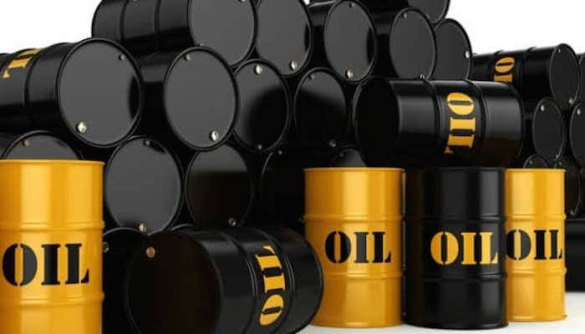In a significant shift, the Federal Government has adjusted Nigeria’s oil production target from an ambitious 4 million barrels per day (bpd) to a more realistic figure of 2.6 million bpd by 2026, reflecting the current challenges facing Africa’s largest oil exporter.
The Nigerian Upstream Petroleum Regulatory Commission (NUPRC) announced the decision Tuesday, highlighting the steep decline from the envisioned output peg prior to President Bola Ahmed Tinubu’s administration. The reduction marks a significant departure from the country’s earlier targets, which were set alongside an aspiration to increase reserves to 40 billion barrels.
Nigeria, which has long been plagued by crude theft and pipeline vandalism in the Niger Delta, along with low investment in the sector, has seen a detrimental impact on its oil production and government revenue. These issues have persistently undermined the nation’s ability to meet its oil output goals.
Despite these challenges, the government had not publicly announced a reduction in its production target until now. This strategic adjustment is seen as a response to the ongoing realities in the oil sector, aiming to set a more attainable goal given the current circumstances.
In a recent development, oil majors have committed to invest $13.5 billion in the short term. This pledge follows meetings between President Tinubu and senior executives from TotalEnergies, Shell, and ExxonMobil. The investment is viewed as a critical step toward reviving the oil sector and boosting production.
As part of its 2024-2026 action plan, the NUPRC stated that it would focus on developing oil assets in areas less susceptible to theft and vandalism. The commission also plans to support alternative crude oil evacuation routes to mitigate the risk of disruptions caused by illegal activities.
The regulator’s strategy includes increasing production from 1.8 million bpd in 2024 to the targeted 2.6 million bpd by 2026. To achieve this, the NUPRC is working to reduce the cost of oil production to about $20 a barrel, a significant decrease from the current range of $25 to $40. Providing incentives to oil producers is a key component of this cost-cutting initiative.
Further measures to boost investment and production include setting up a framework for standardized tariffs on crude oil and gas transportation and handling costs. The commission will also implement an open access regime for upstream oil and gas pipelines and ancillary facilities. High signature bonuses, which are one-off fees paid to secure exploration blocks, will be reduced to attract more investment.
In a collaborative effort to enhance the sector’s efficiency, the Nigerian National Petroleum Company Limited and the Nigerian Content Development and Monitoring Board signed a Memorandum of Understanding (MoU) with international oil companies last year. The MoU, aimed at reducing the contracting cycle in the sector to a maximum of 180 working days, was signed at the national oil firm’s headquarters in Abuja.
This optimized contracting cycle is expected to improve the ease of doing business, drive efficiency, and ultimately lead to production growth, increased revenues, and enhanced profitability. The MoU is also anticipated to contribute significantly to the Federal Government’s double-digit economic growth rate agenda and generate value for all stakeholders, including investors, companies, host communities, and Nigeria.
The adjustment in Nigeria’s oil production target and the accompanying strategic measures reflect a pragmatic approach to tackling the challenges in the oil sector. While acknowledging the difficulties, the government and regulatory bodies are taking concrete steps to revitalize the industry, aiming to secure a more sustainable and profitable future for the nation’s oil sector.



